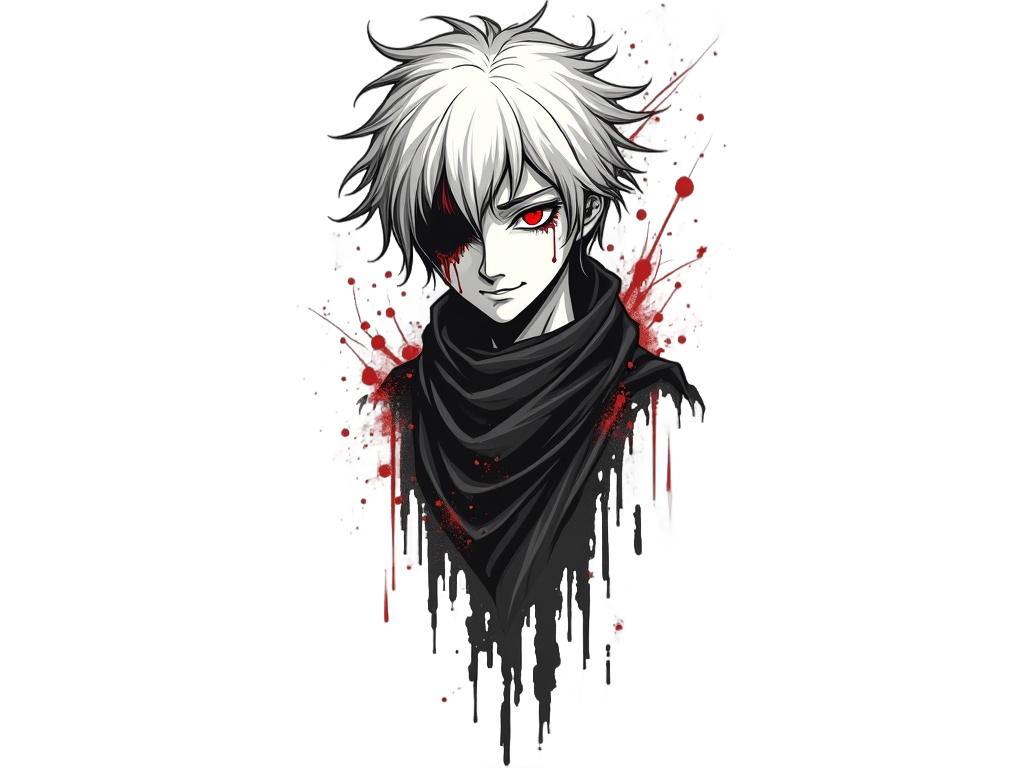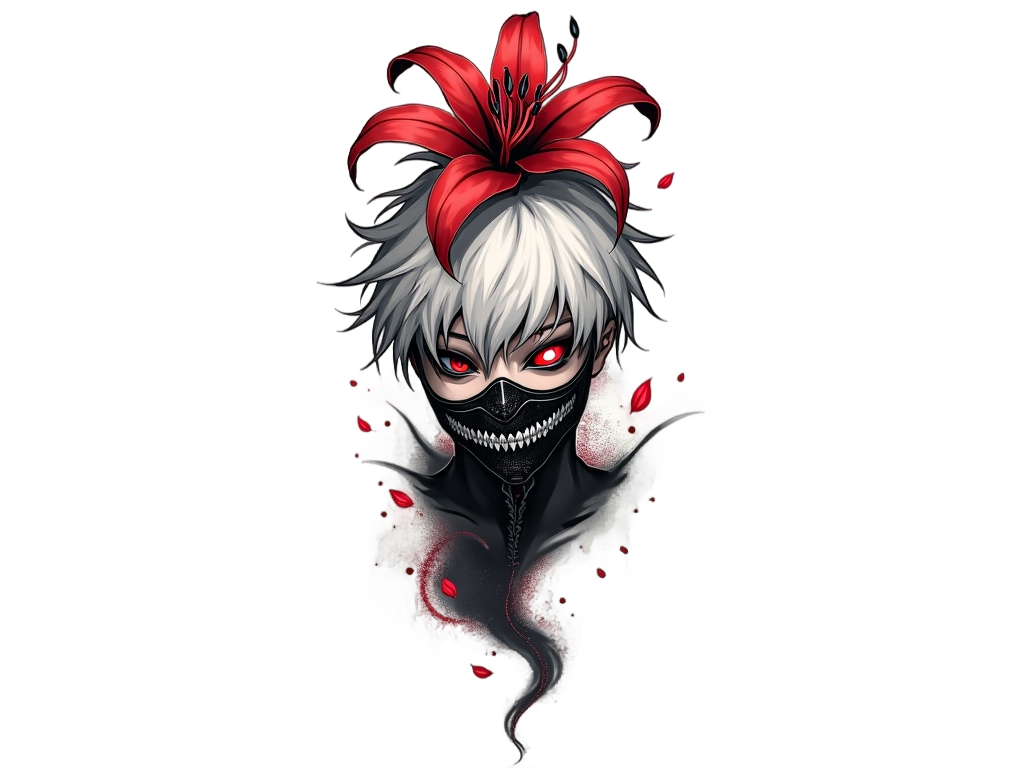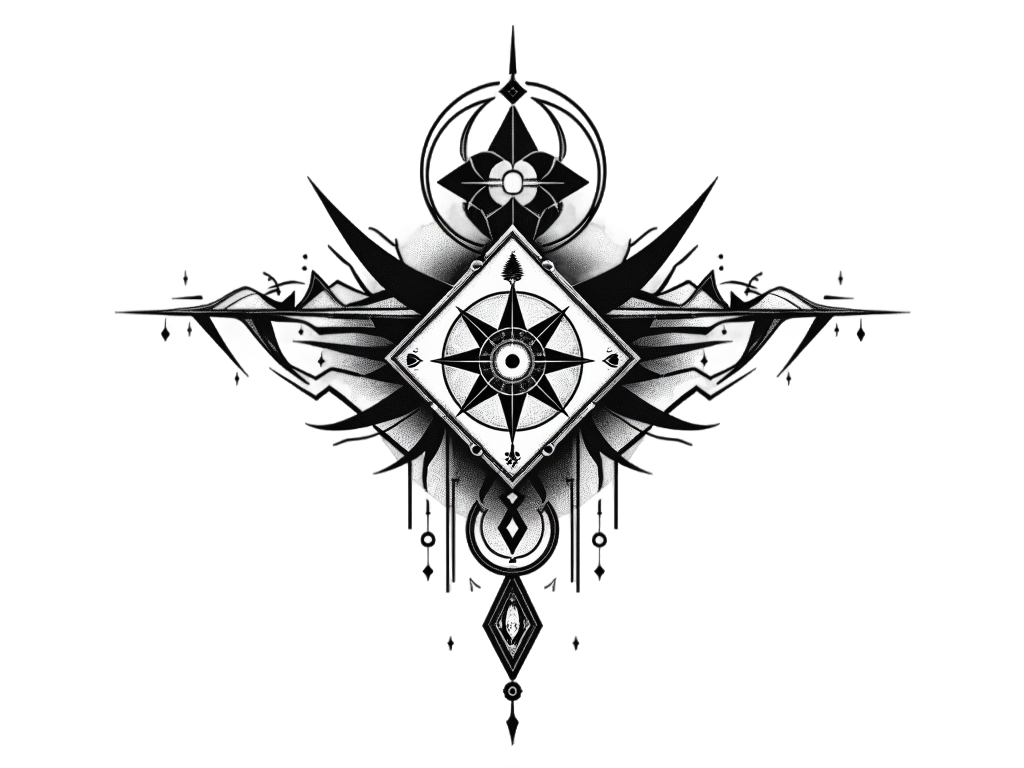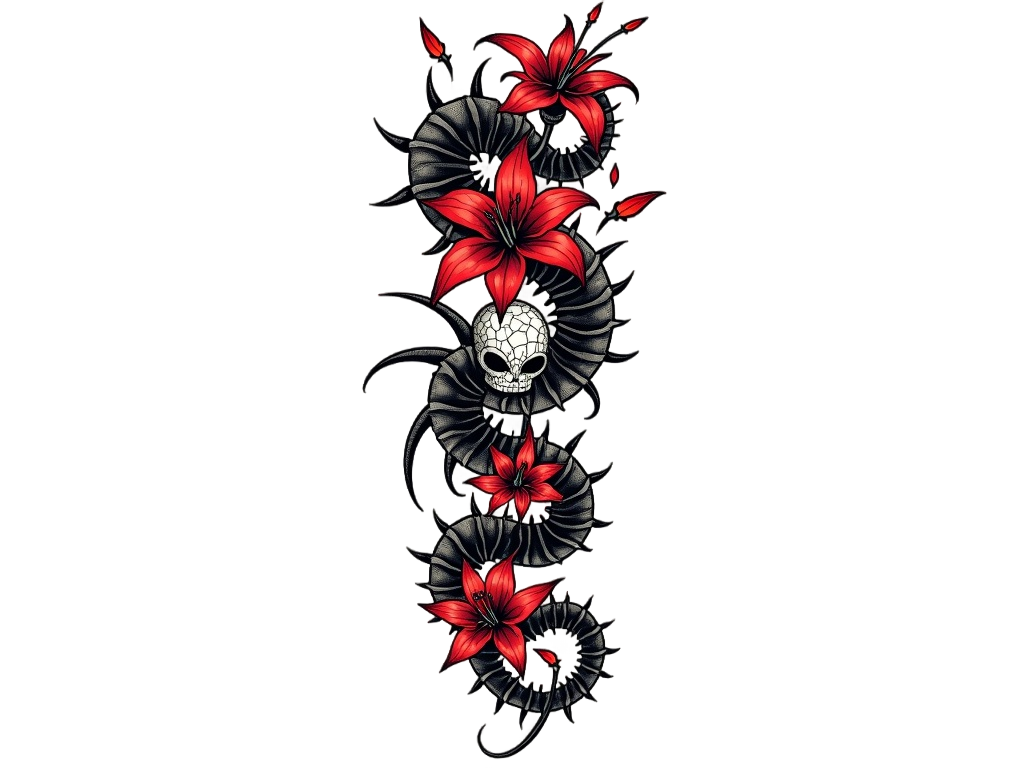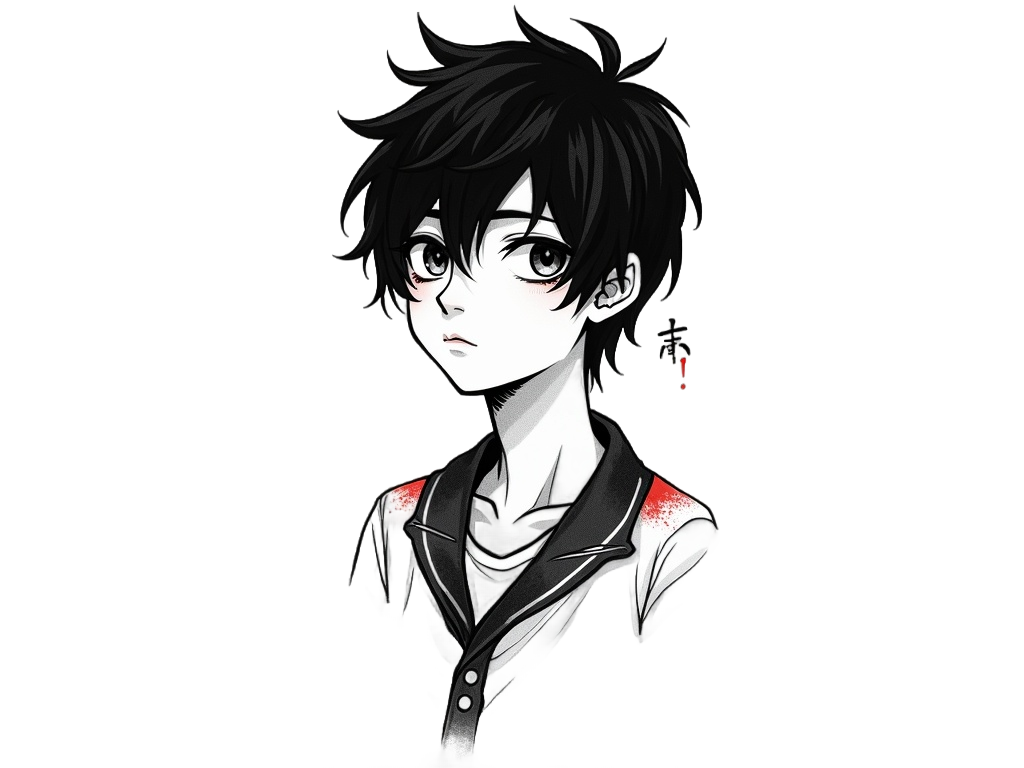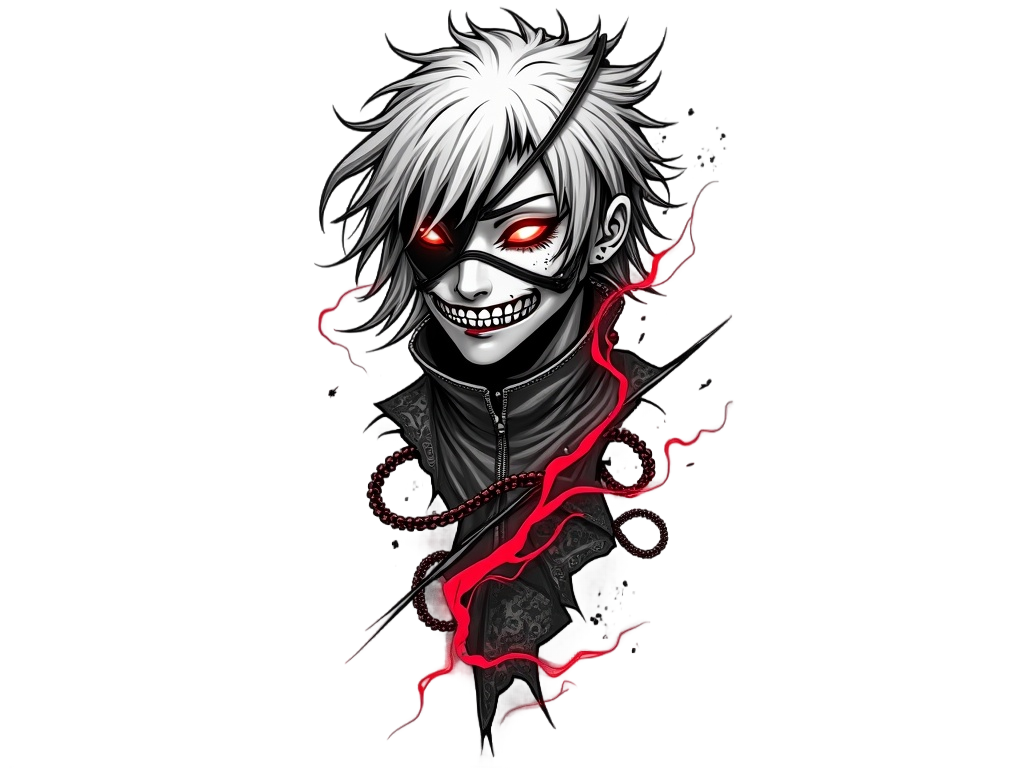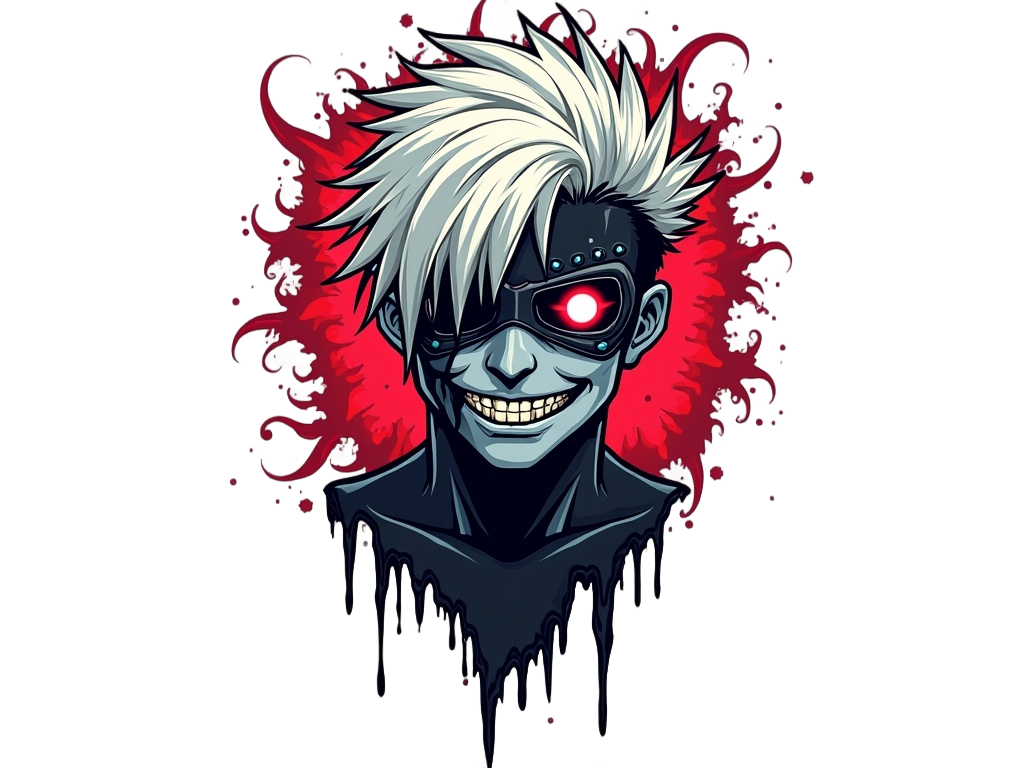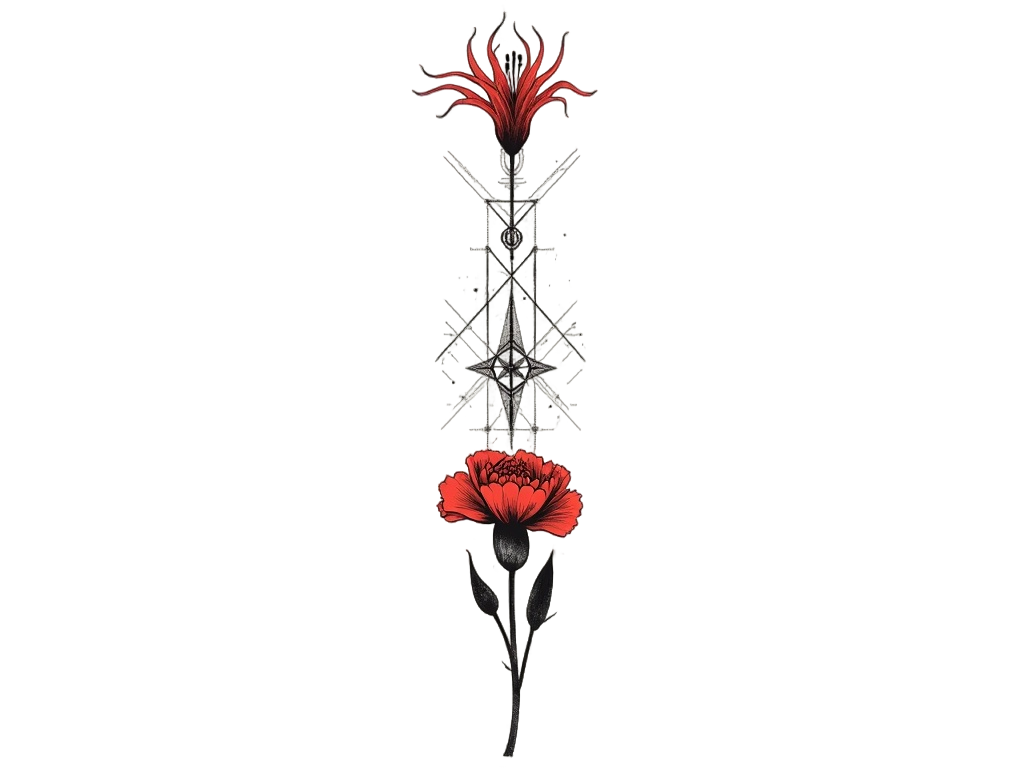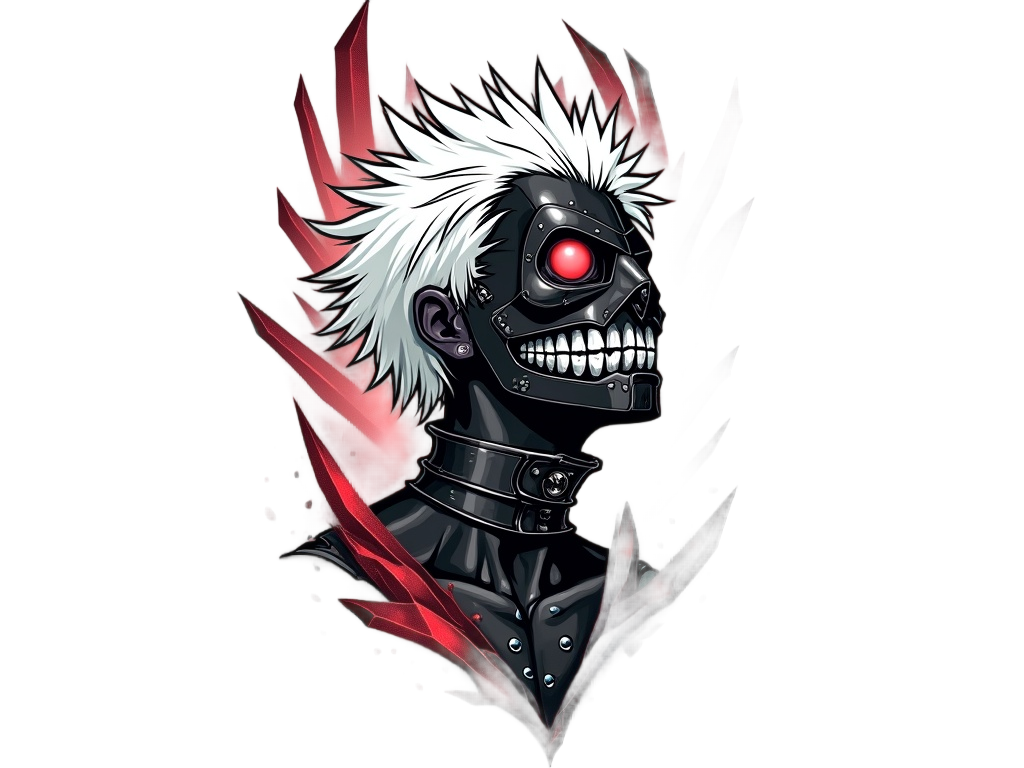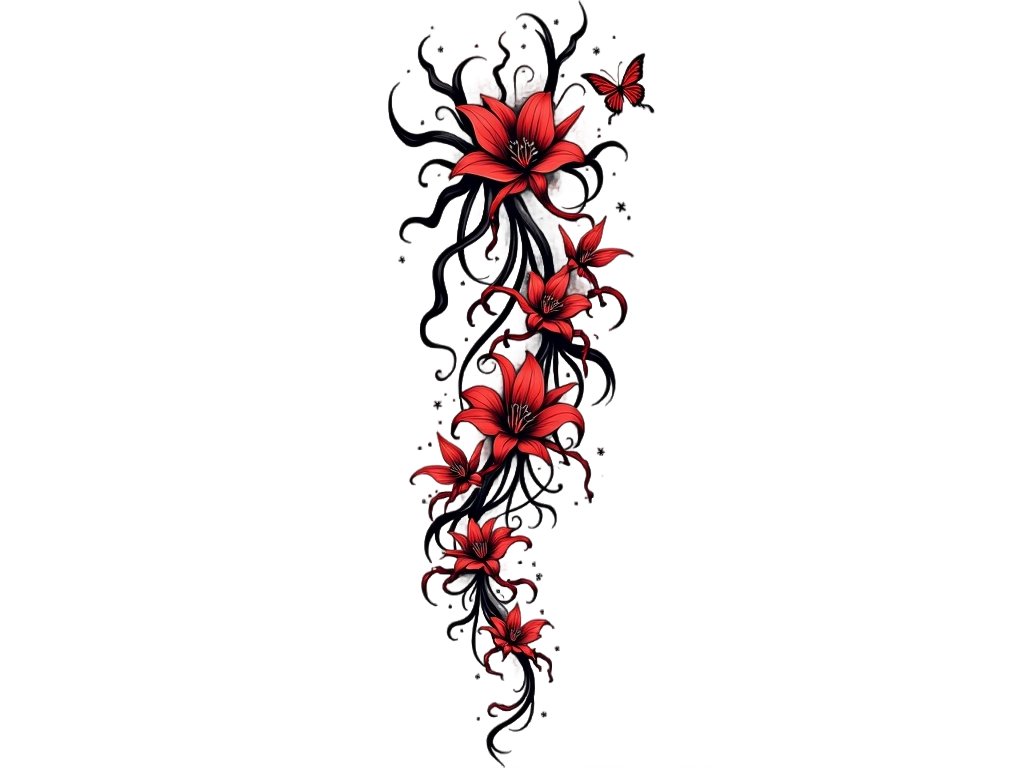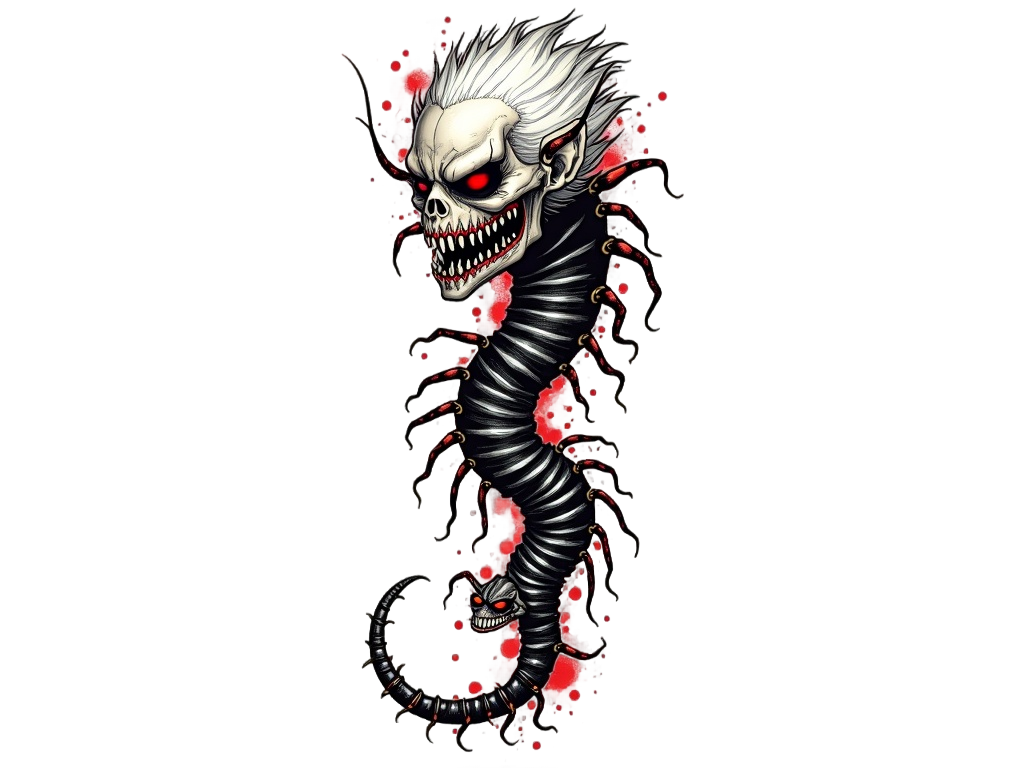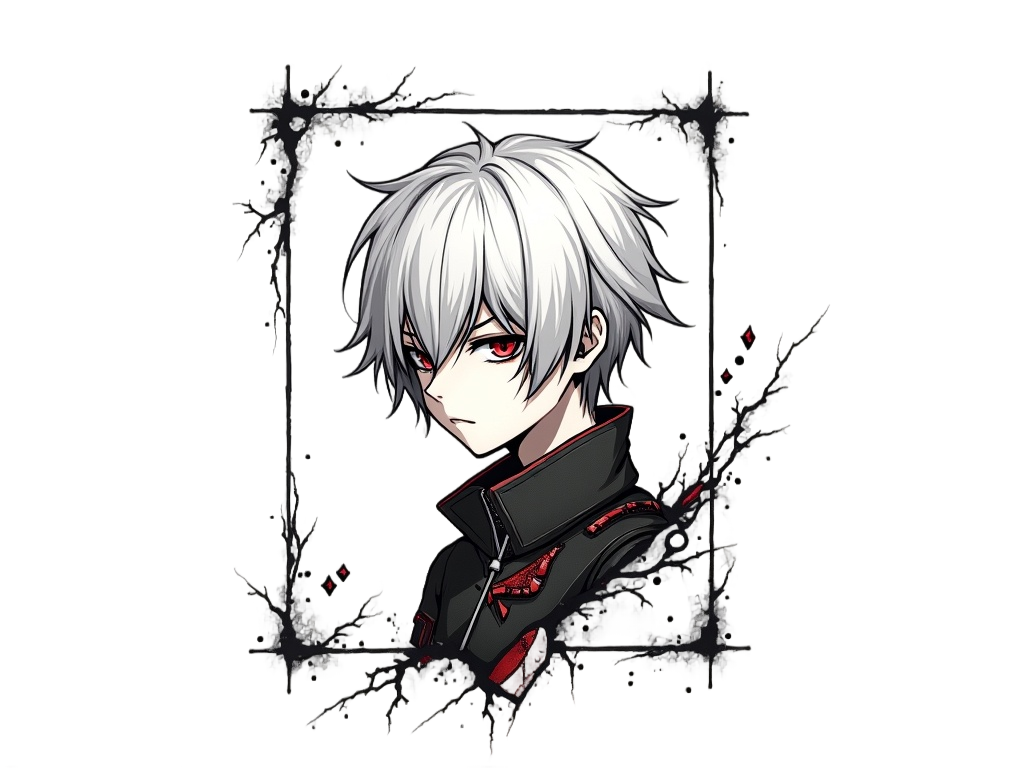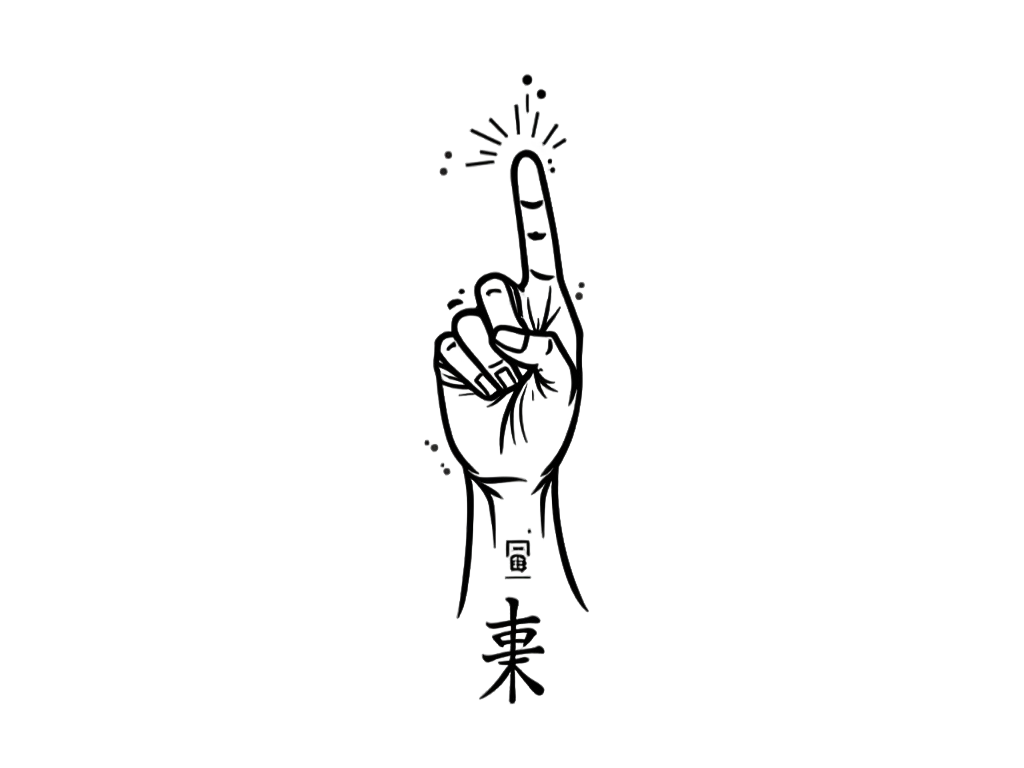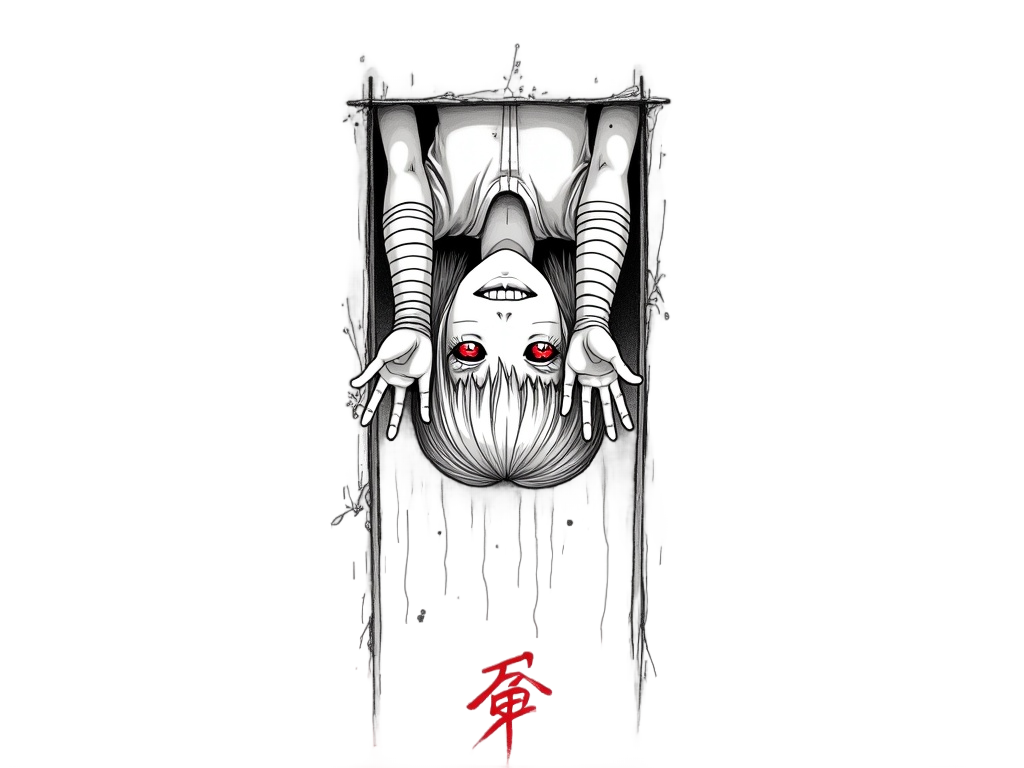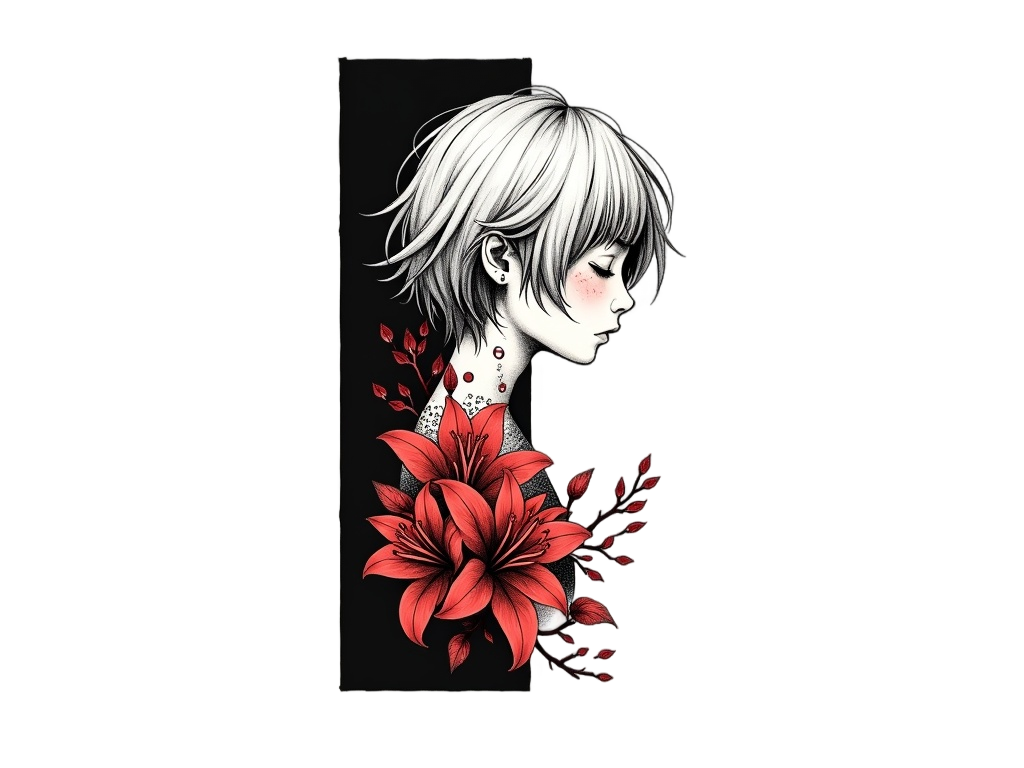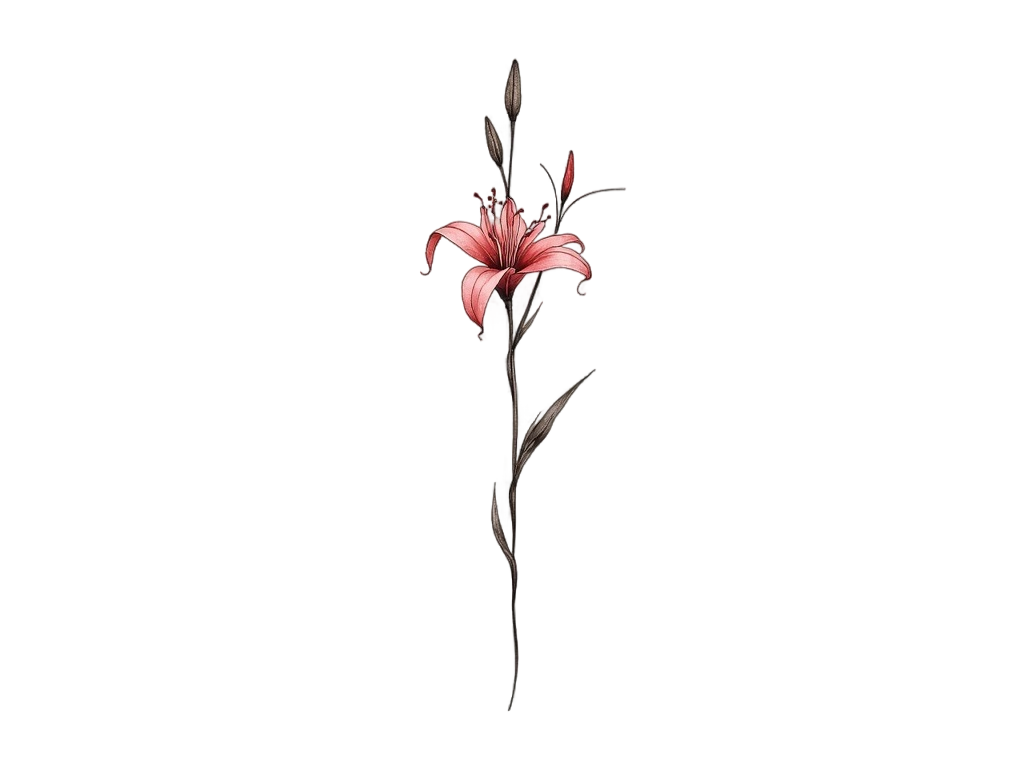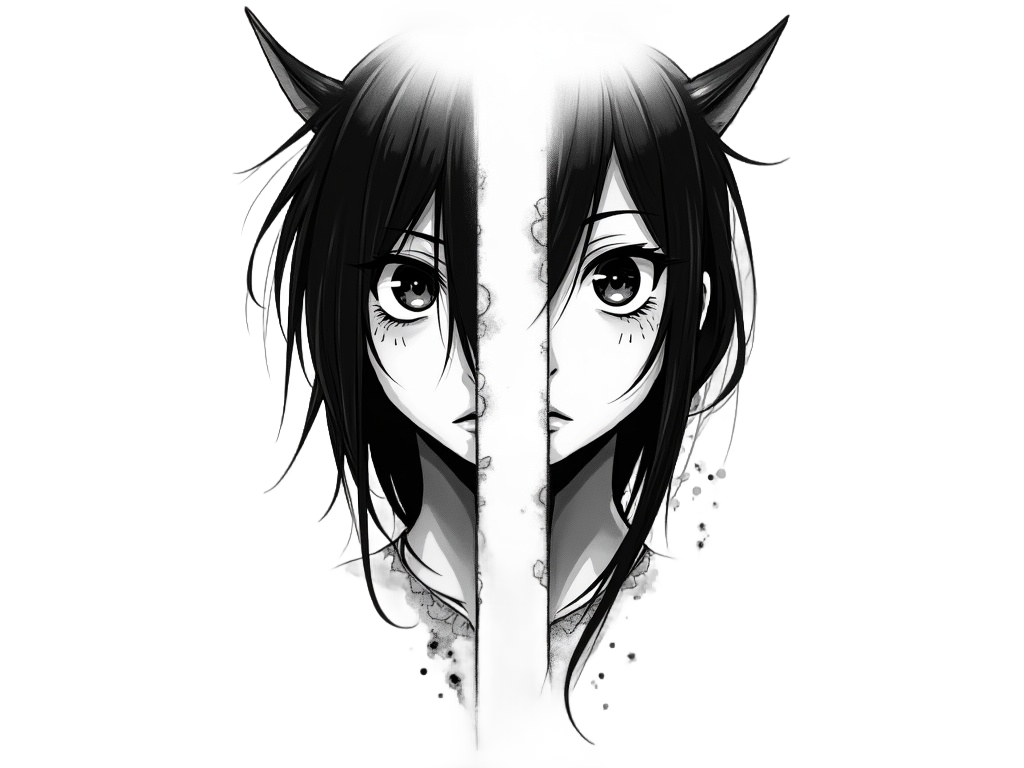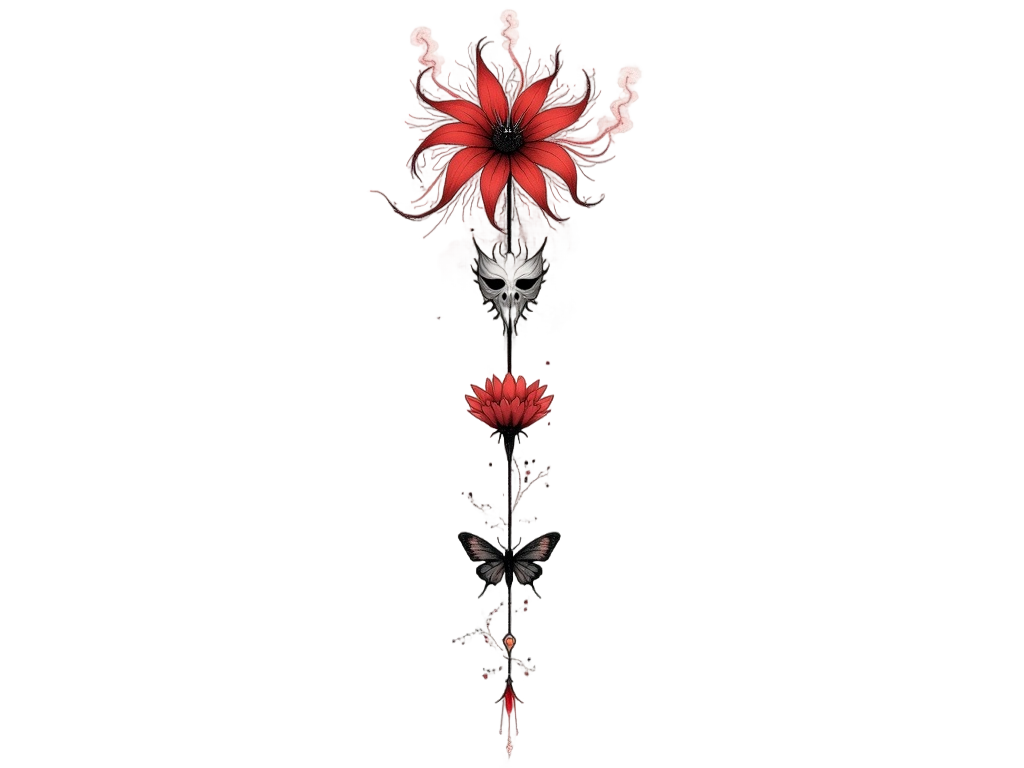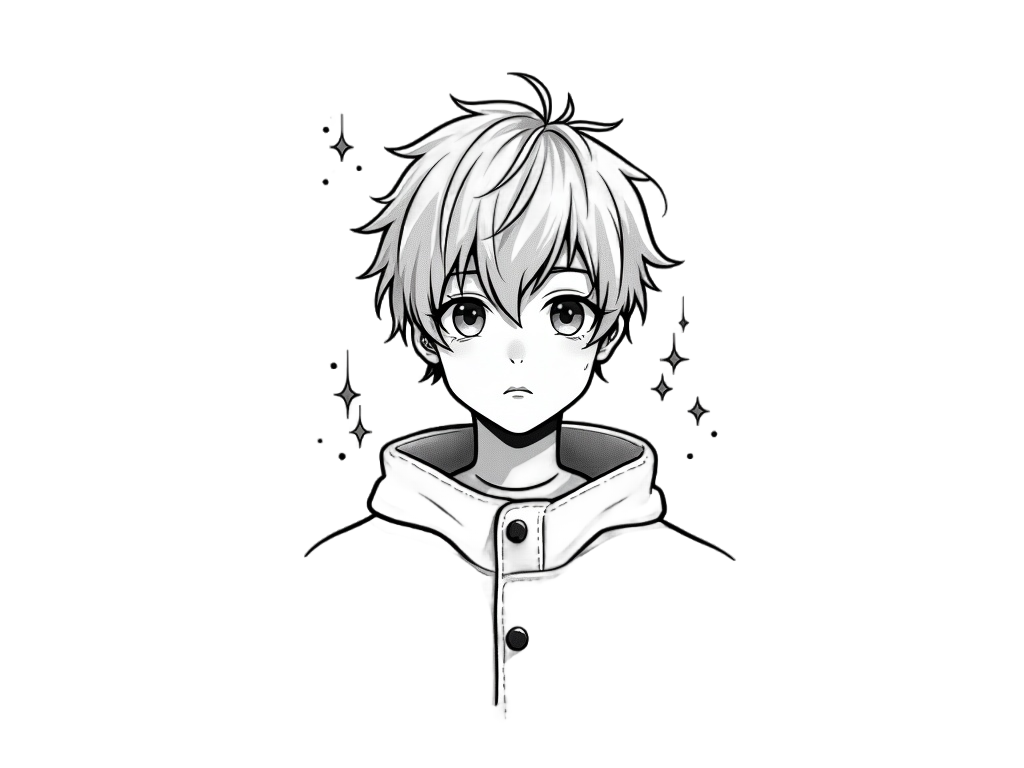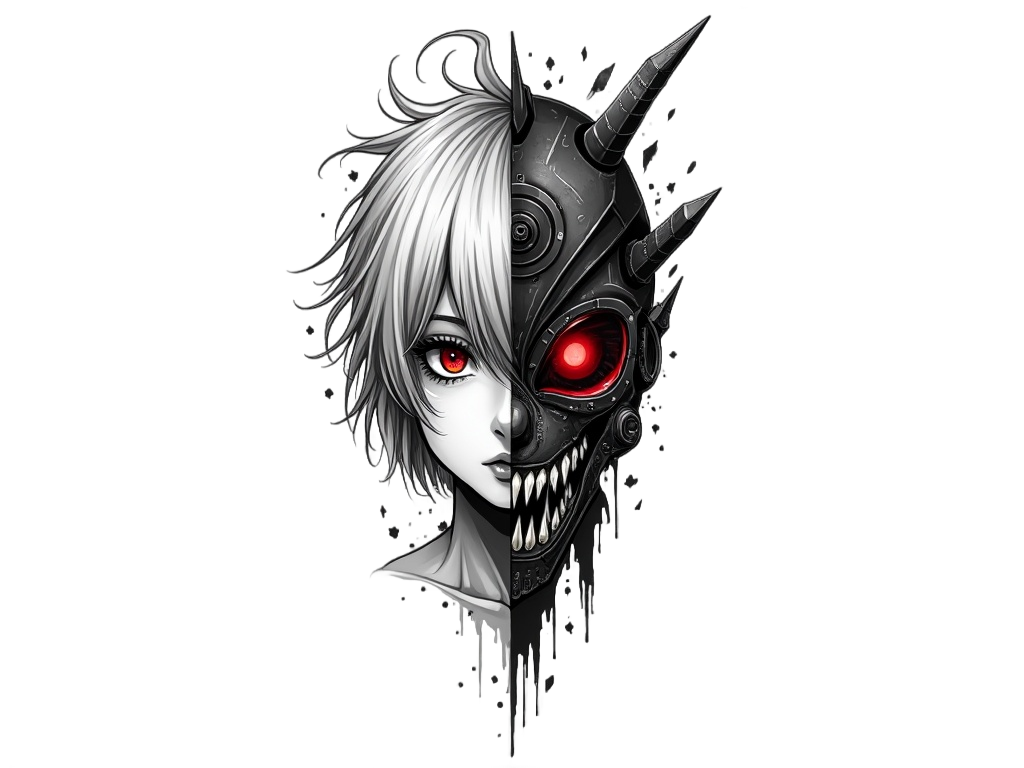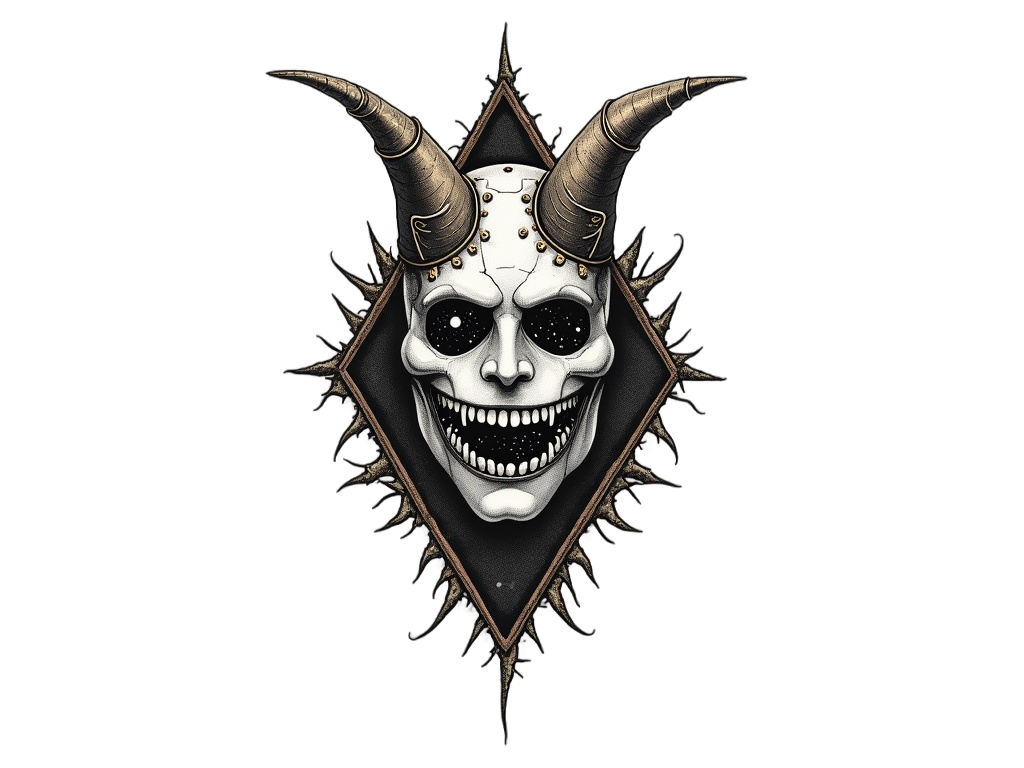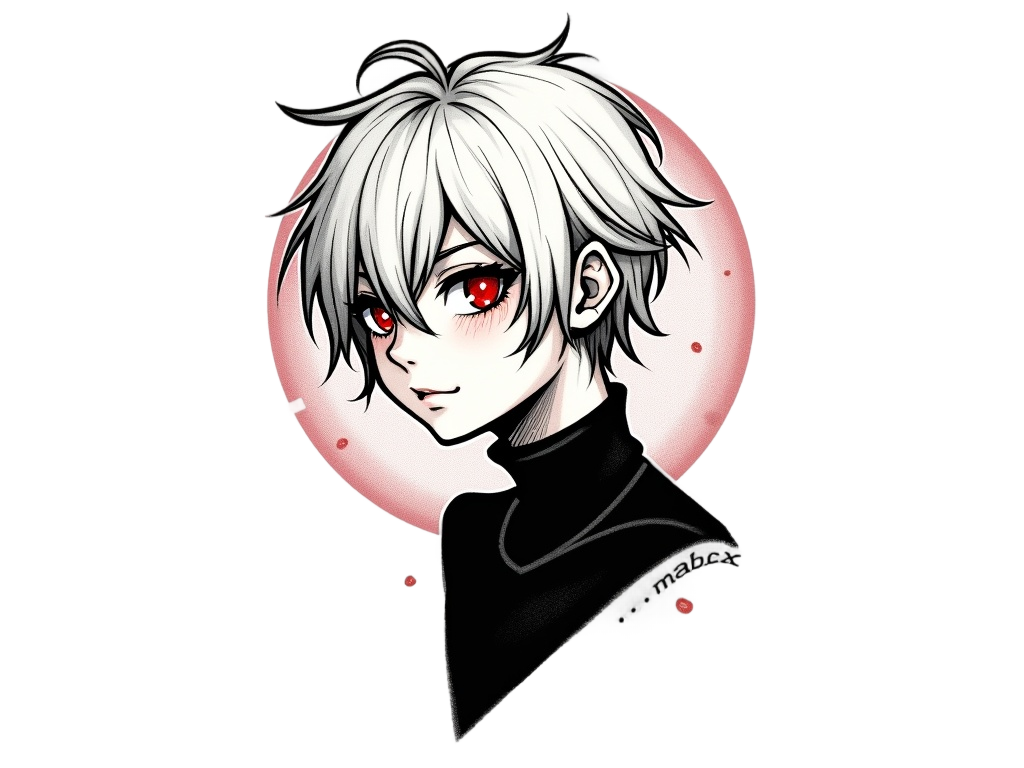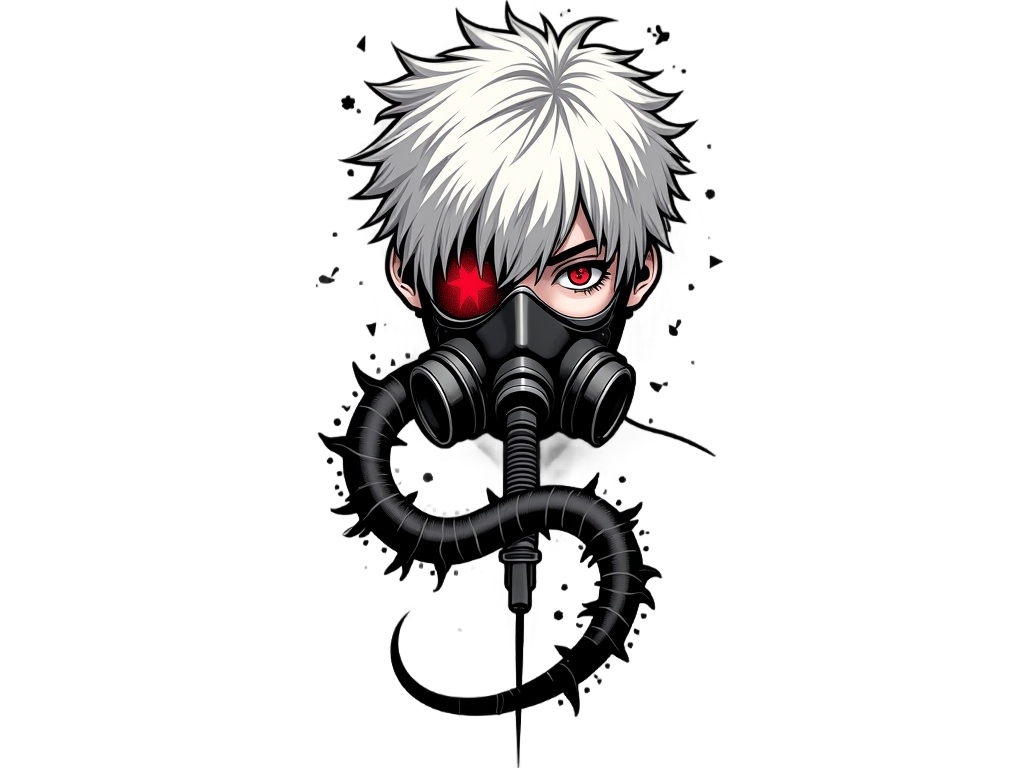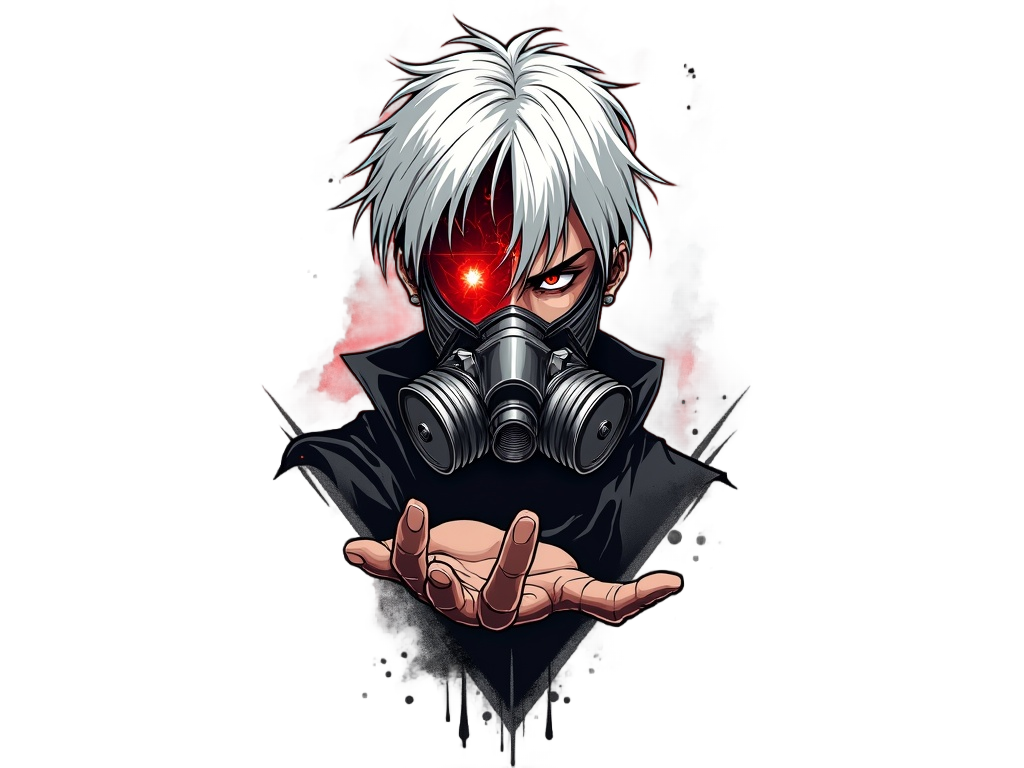Tokyo ghoul Tattoo Ideas, Designs and Meaning
Meaning of Tokyo ghoul Tattoos
- "Tokyo Ghoul" tattoos are inspired by the popular Japanese manga and anime series, which explores themes of identity, humanity, and survival.
- These tattoos often symbolize the struggle between one's human side and darker instincts, reflecting the duality present in the series' protagonist, Kaneki Ken.
- Fans of the series may choose these tattoos to express their connection to the story's themes of transformation and resilience.
- The cultural significance of "Tokyo Ghoul" tattoos is rooted in Japanese pop culture, appealing to anime enthusiasts and those who appreciate Japanese art and storytelling.
- Historically, the series has gained a global fanbase since its debut in 2011, influencing tattoo art with its unique characters and dark aesthetic.
- Common tattoo designs include the iconic mask worn by Kaneki, the series' logo, or detailed portraits of favorite characters.
- These tattoos are popular among both men and women, often placed on visible areas like the forearm, shoulder, or back to showcase intricate details.
- Styles can range from realistic and detailed to more abstract or stylized interpretations, depending on personal preference.
- "Tokyo Ghoul" tattoos can also represent a personal journey or transformation, resonating with those who have faced significant life changes.
2,200 Tattoo Ideas
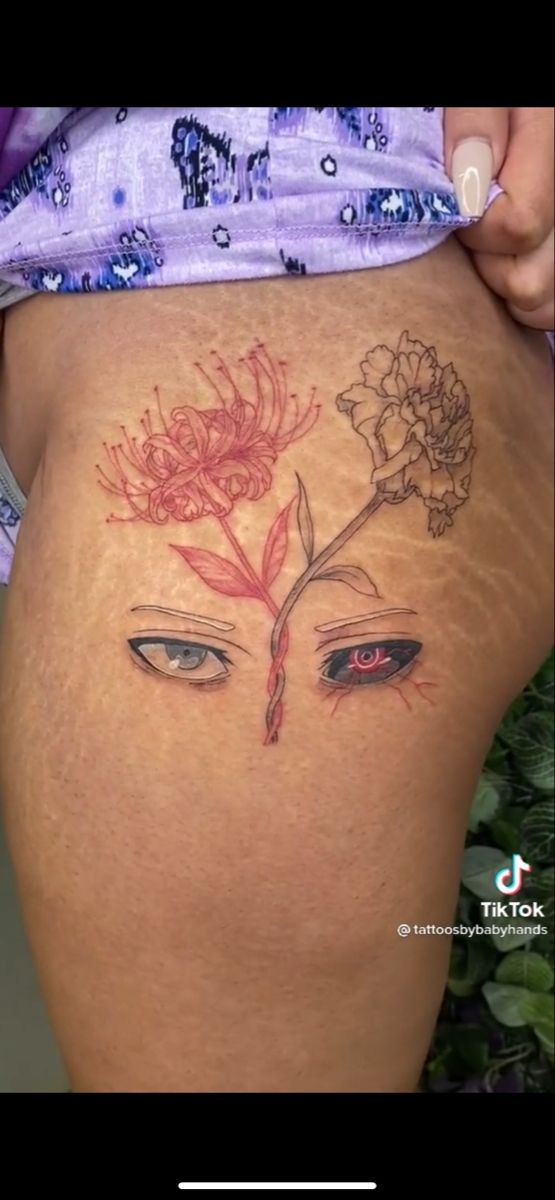

tokyo ghoul tattoo
Selection from Pinterest
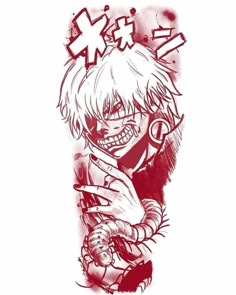

Tokyo Ghoul Tattoo Stencil
Selection from Pinterest
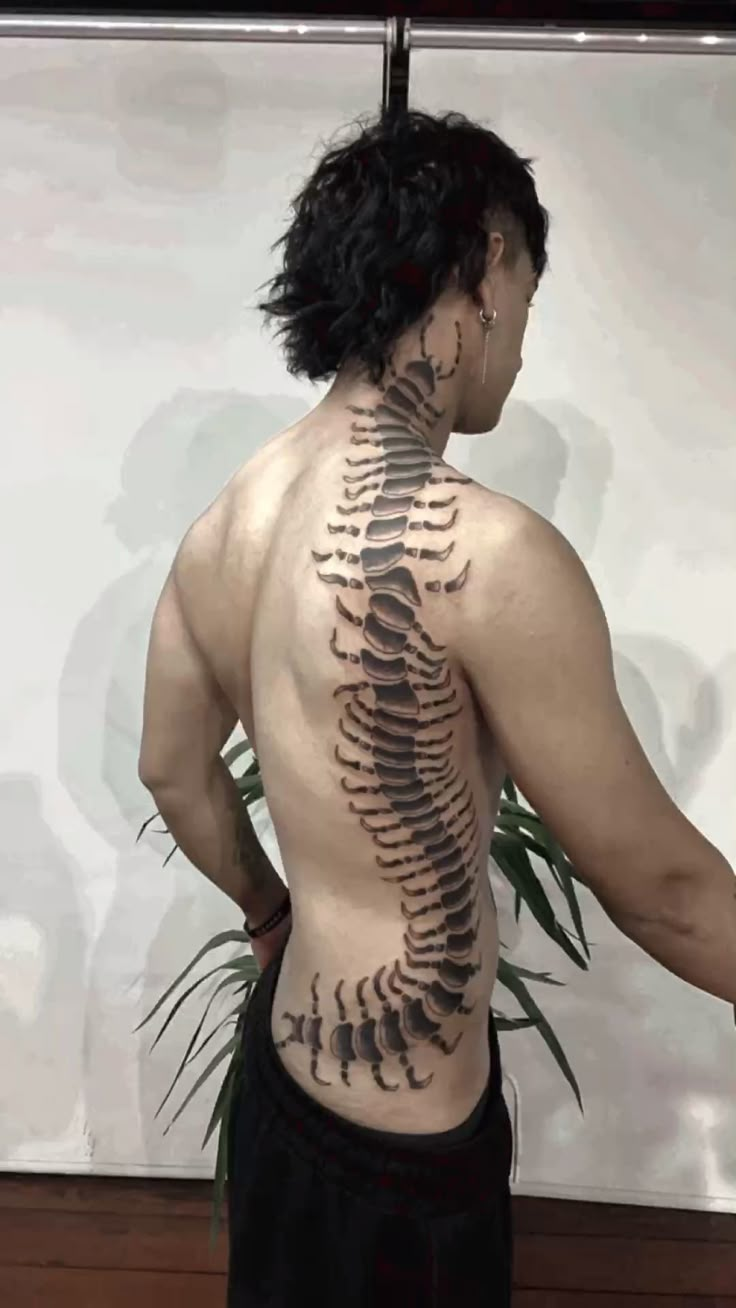

tokyo ghoul tattoo
Selection from Pinterest
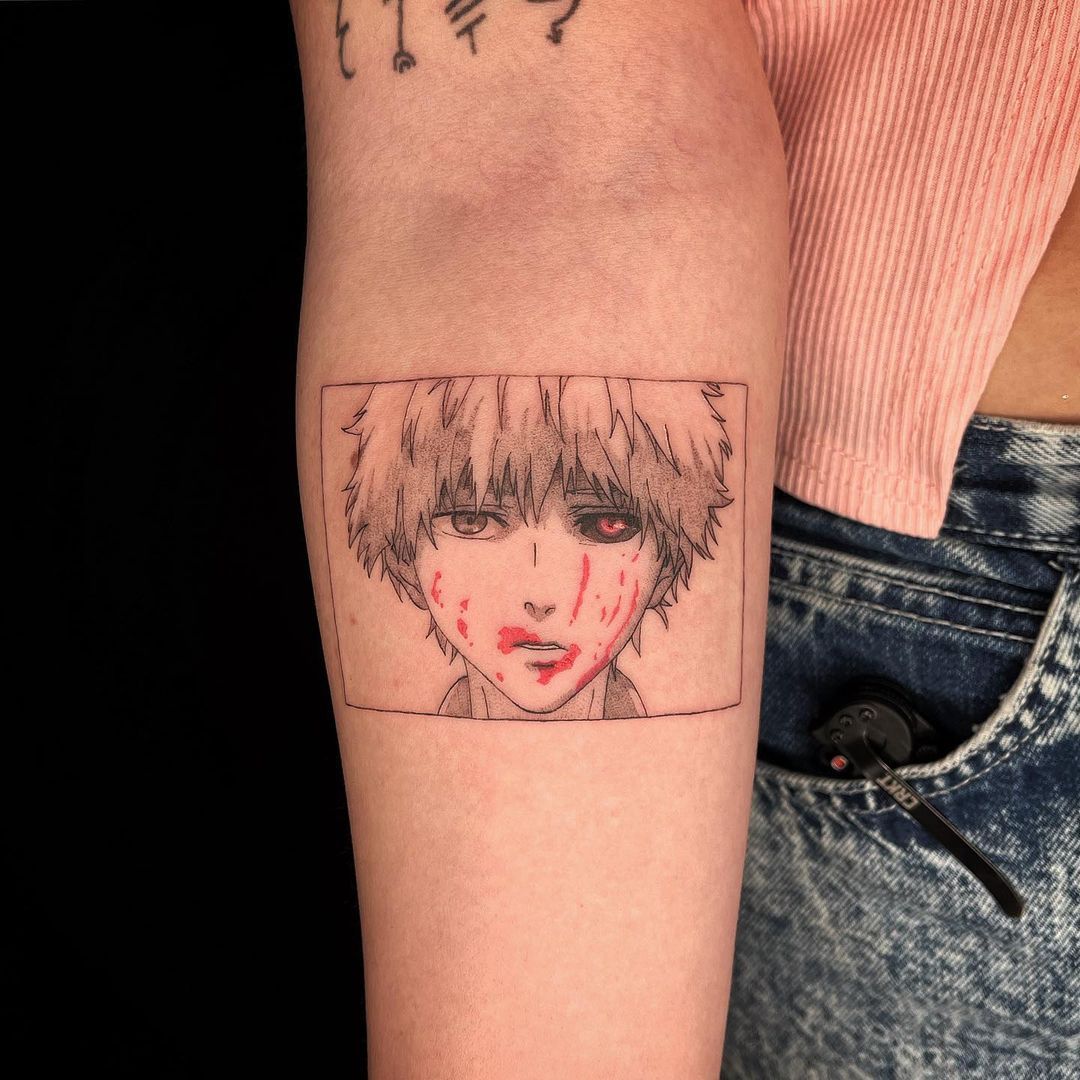

670 Tokyo Ghoul ideas | tokyo ghoul, ghoul, tokyo
Selection from Pinterest
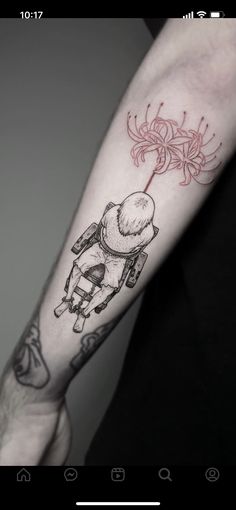

Tokyo Ghoul Manga Tattoo
Selection from Pinterest
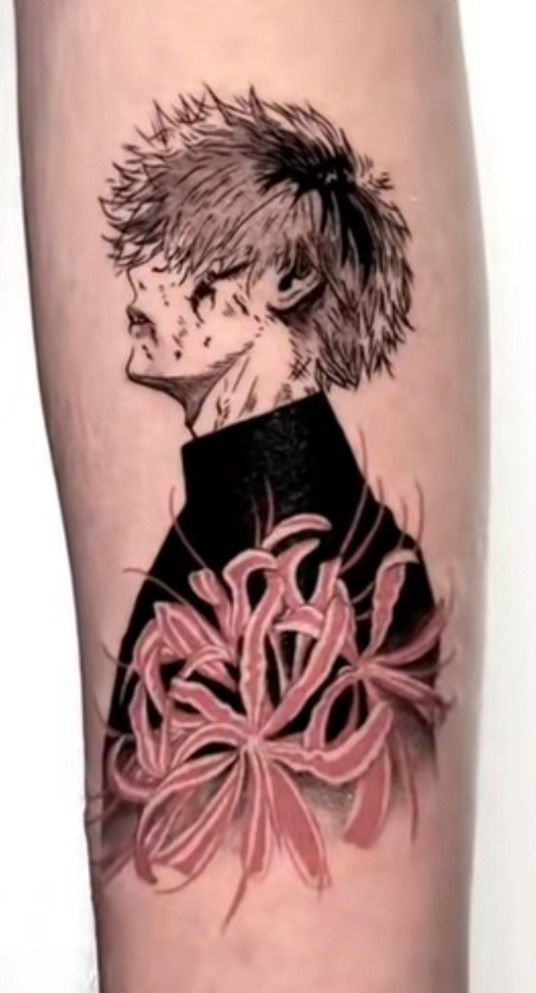

Kaneki Tatto
Selection from Pinterest
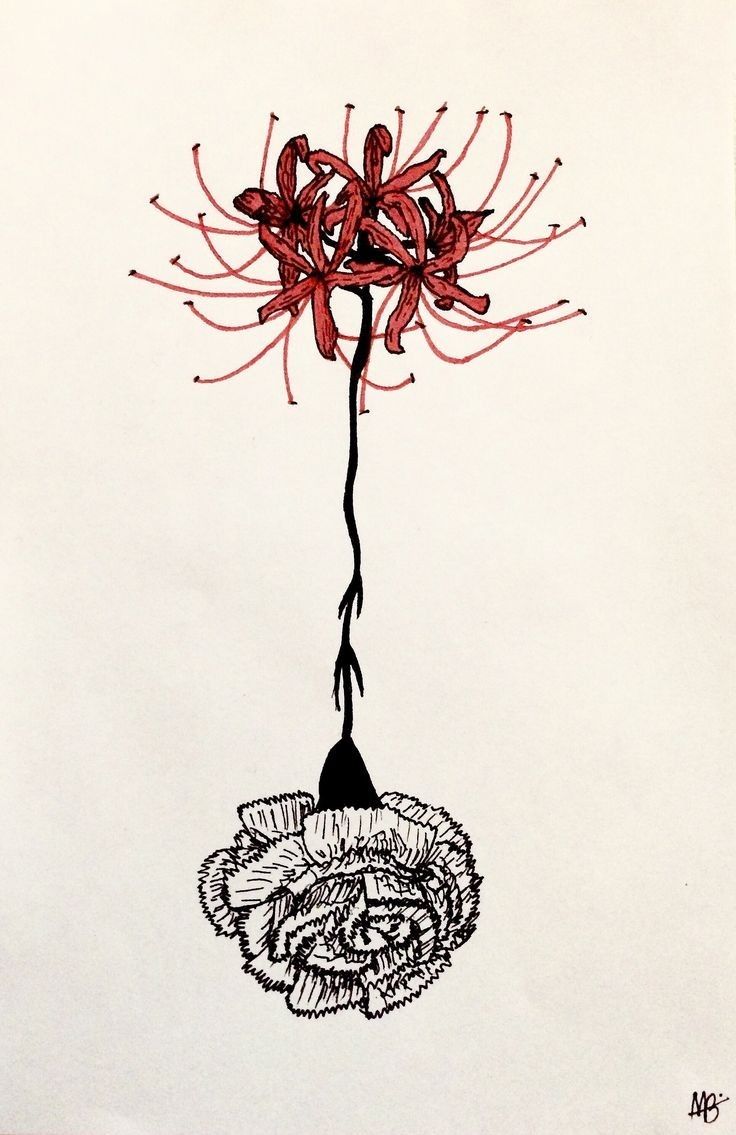

Pin by Love🌌🖤 on INSTAGRAM HIGHLIGHTS LOGO | Tokyo ghoul flower, Tattoos, Tattoo designs
Selection from Pinterest
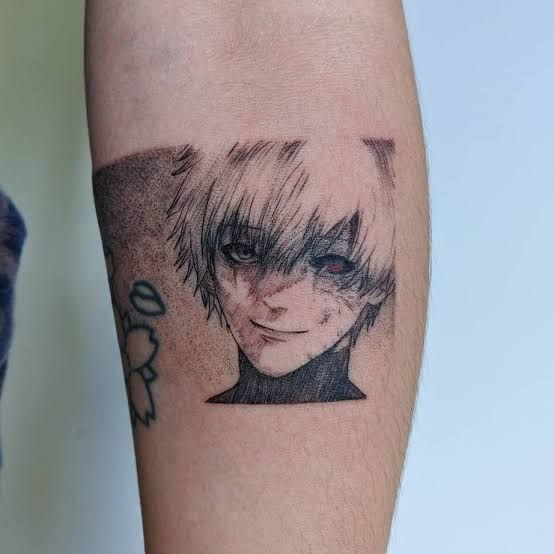

Pin by Kyle Gothur on tattoo ideas | Anime tattoos, Body art tattoos, Cute tattoos
Selection from Pinterest
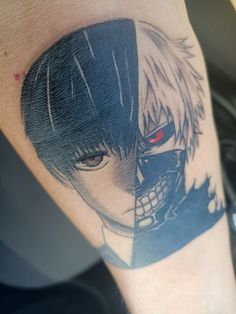

Tokyo Ghoul Tattoo Touka
Selection from Pinterest
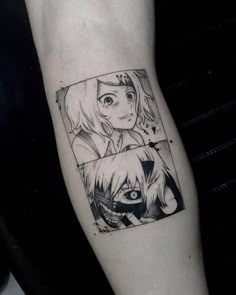

31 kaneki ken ideas to save today | anime tattoos, cute tattoos, tattoos for guys and more
Selection from Pinterest
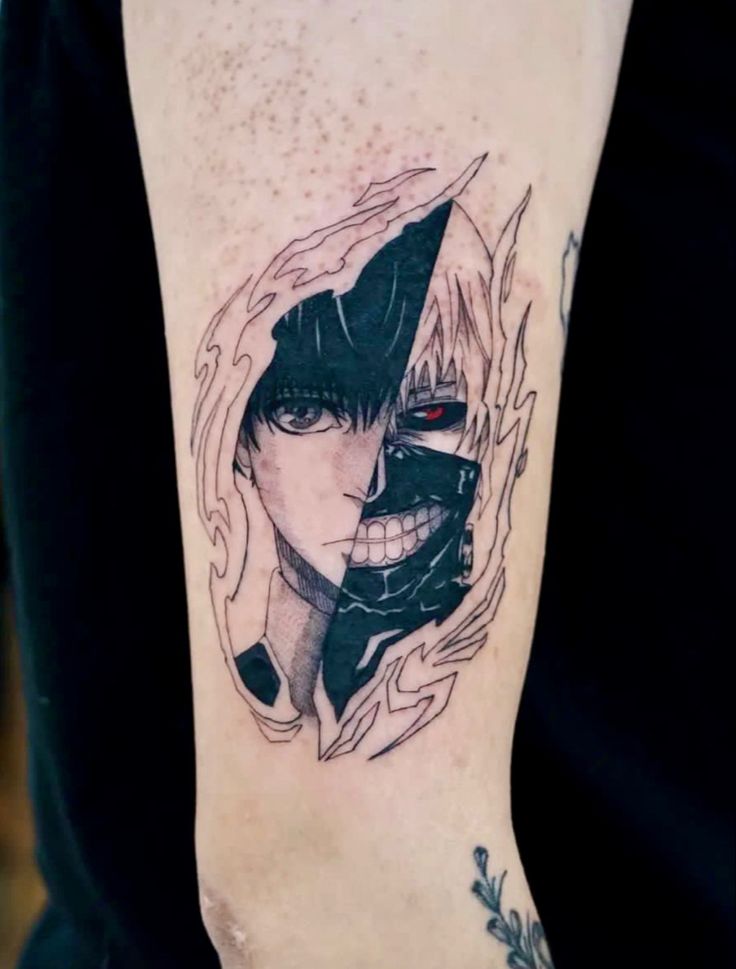

Ken Kaneki Tattoo // Tokyo Ghoul
Selection from Pinterest
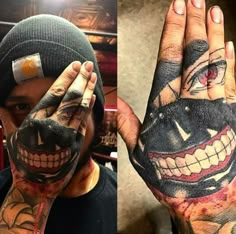

39 Tokyo Ghoul Tattoos ideas | tokyo ghoul, tattoos, anime tattoos
Selection from Pinterest
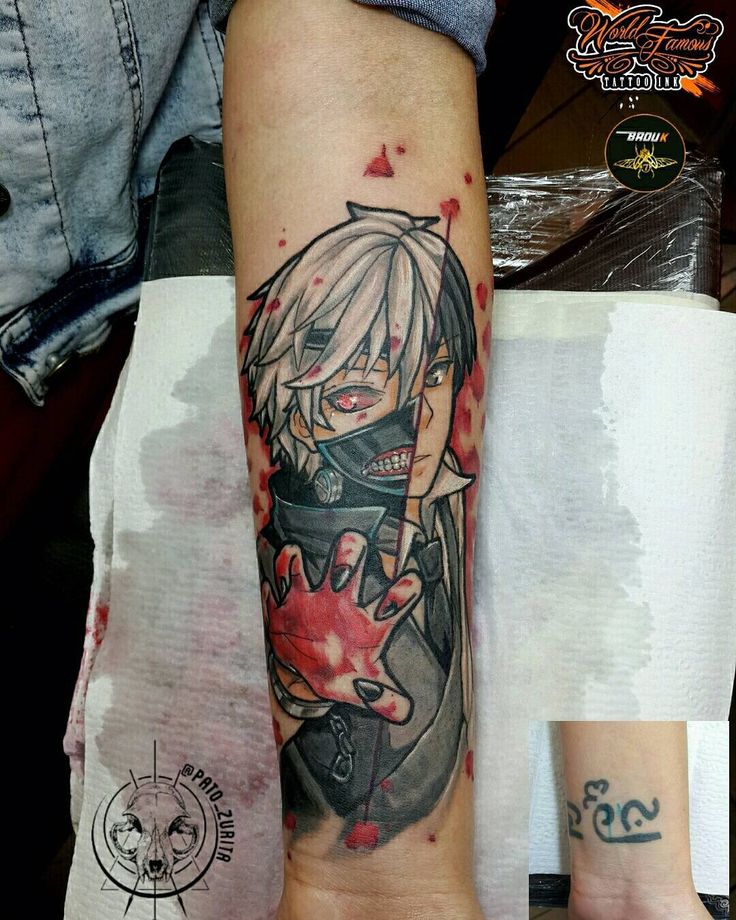

Kaneki tattoo tokyo ghoul tattoo 90 Me gusta, 1 comentarios - Pato Zurita (@pato_zurita) en Instagram: "Great piece from #tokyoghoul. Really fun #kaneki. And yes, this is a cover.. @worldfamousink…"
Selection from Pinterest
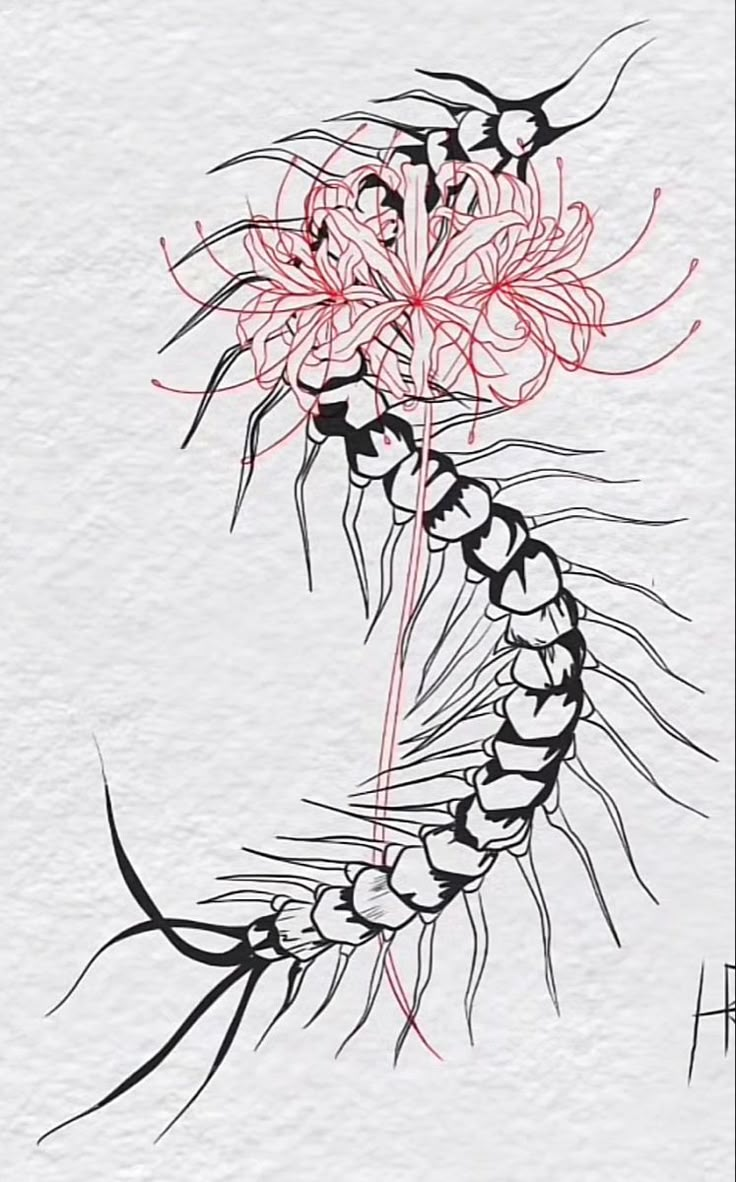

Пин от пользователя Genevieve Shipe на доске Tattoo ideas | Узоры татуировок, Винтажные татуировки, Ретро татуировки
Selection from Pinterest
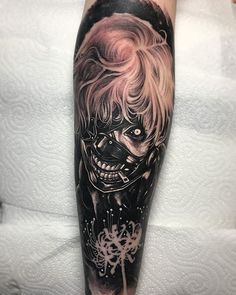

tokyo ghoul tattoos
Selection from Pinterest
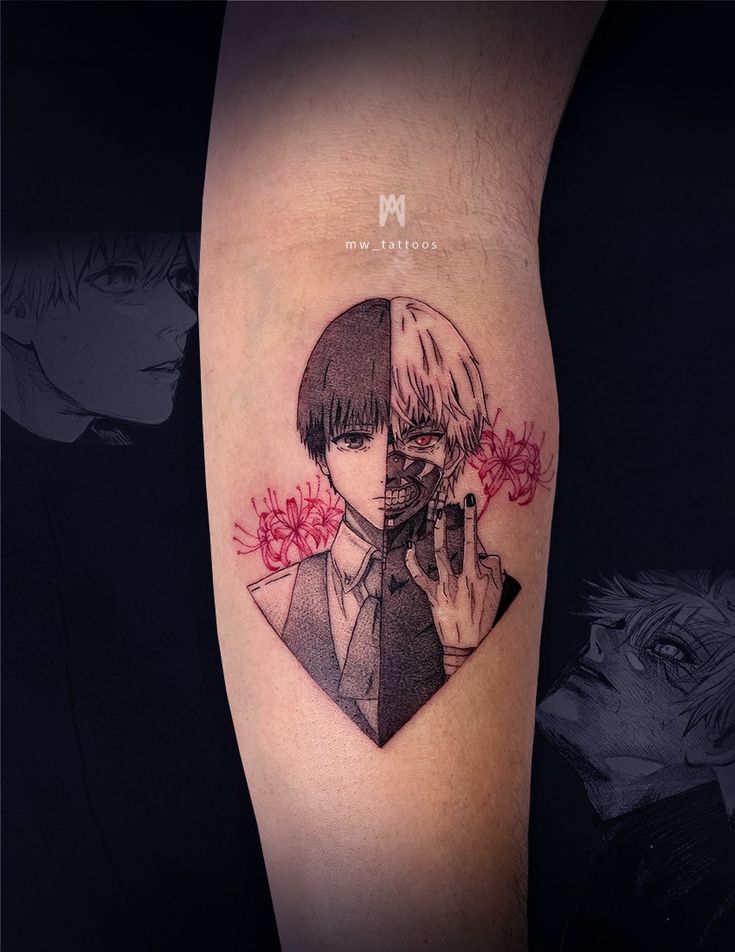

Tokyo Ghoul anime Kaneki fine line tattoo
Selection from Pinterest
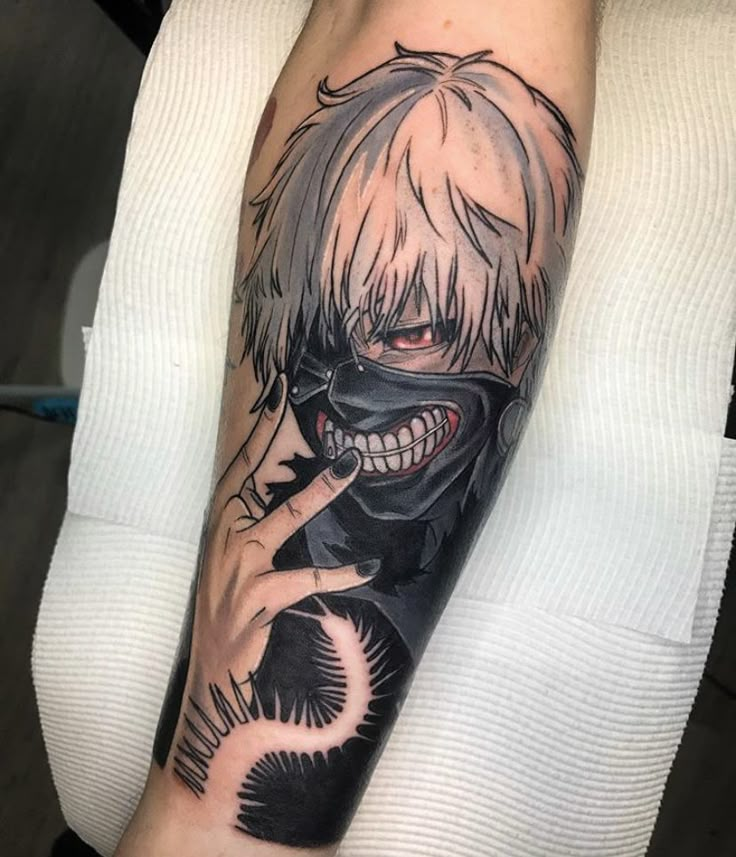

Pin by Kara Jenkins on Tattoos | Anime tattoos, Cool tattoos, Ma tattoo
Selection from Pinterest
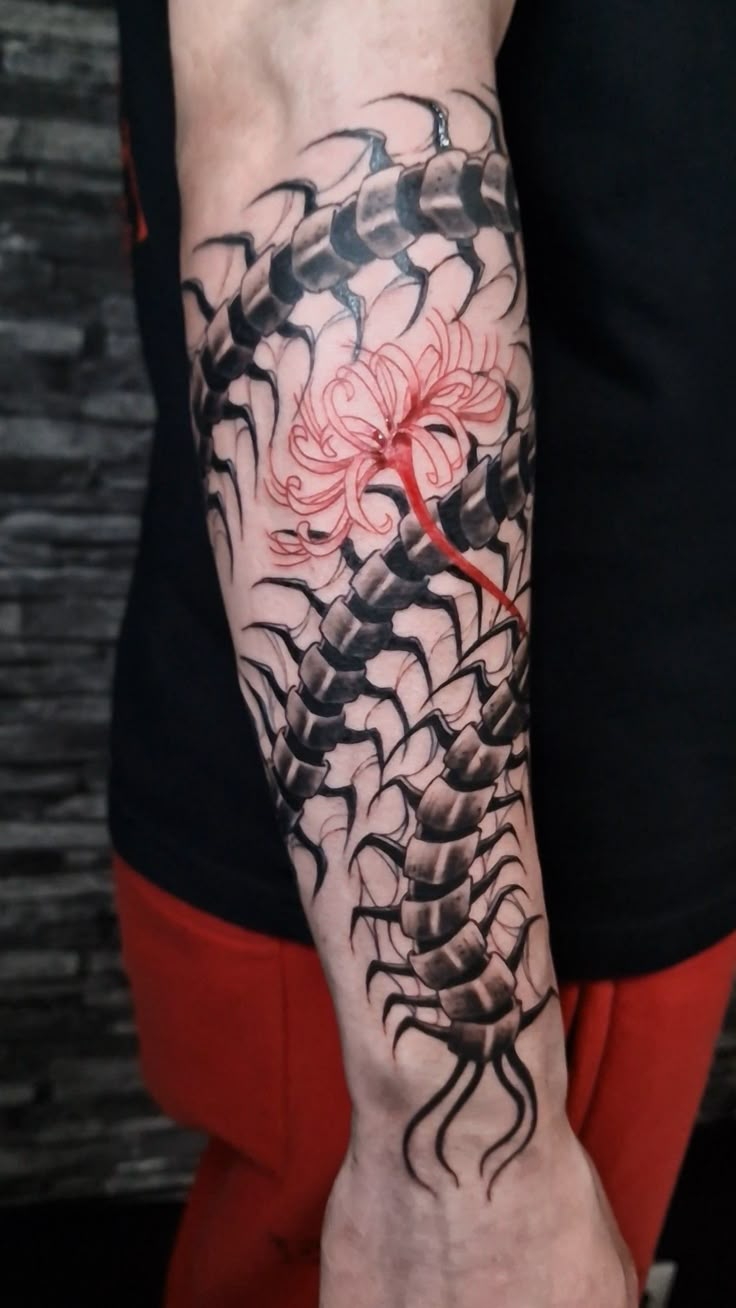

Tokyo Ghoul Tattoo
Selection from Pinterest
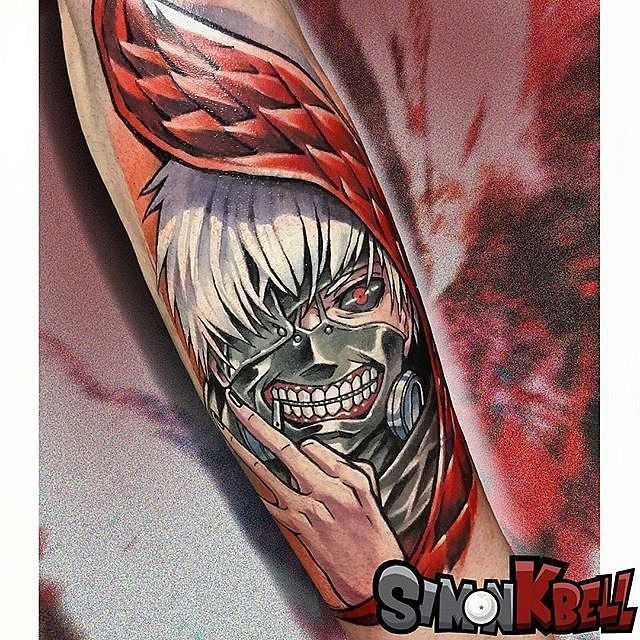

Tokyo Ghoul tattoo done by @simonkbell To submit your work use the tag #epicgamerink And don't forget to share our page too! #tattoo…
Selection from Pinterest
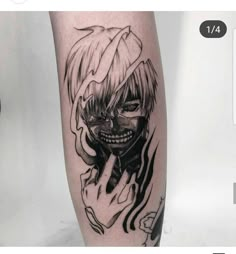

tokyo ghoul tattoos
Selection from Pinterest
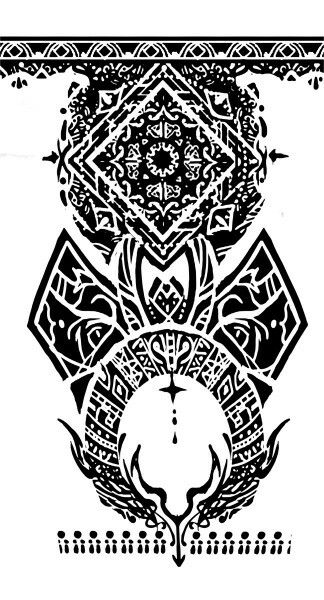

uta | Tokyo ghoul | right arm tattoo
Selection from Pinterest
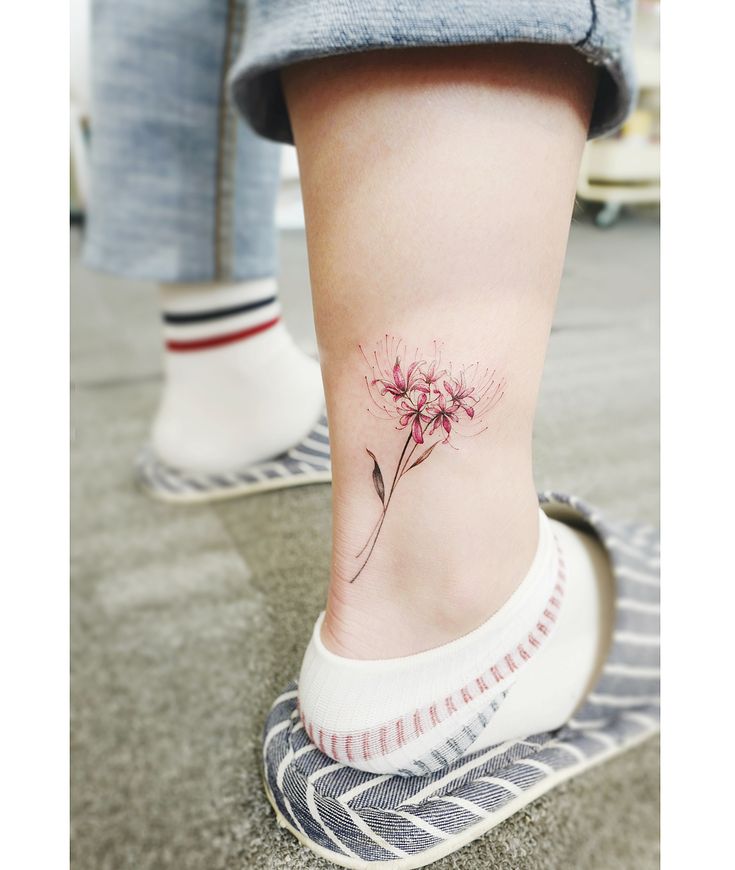

Tokyo Ghoul tats
Selection from Pinterest
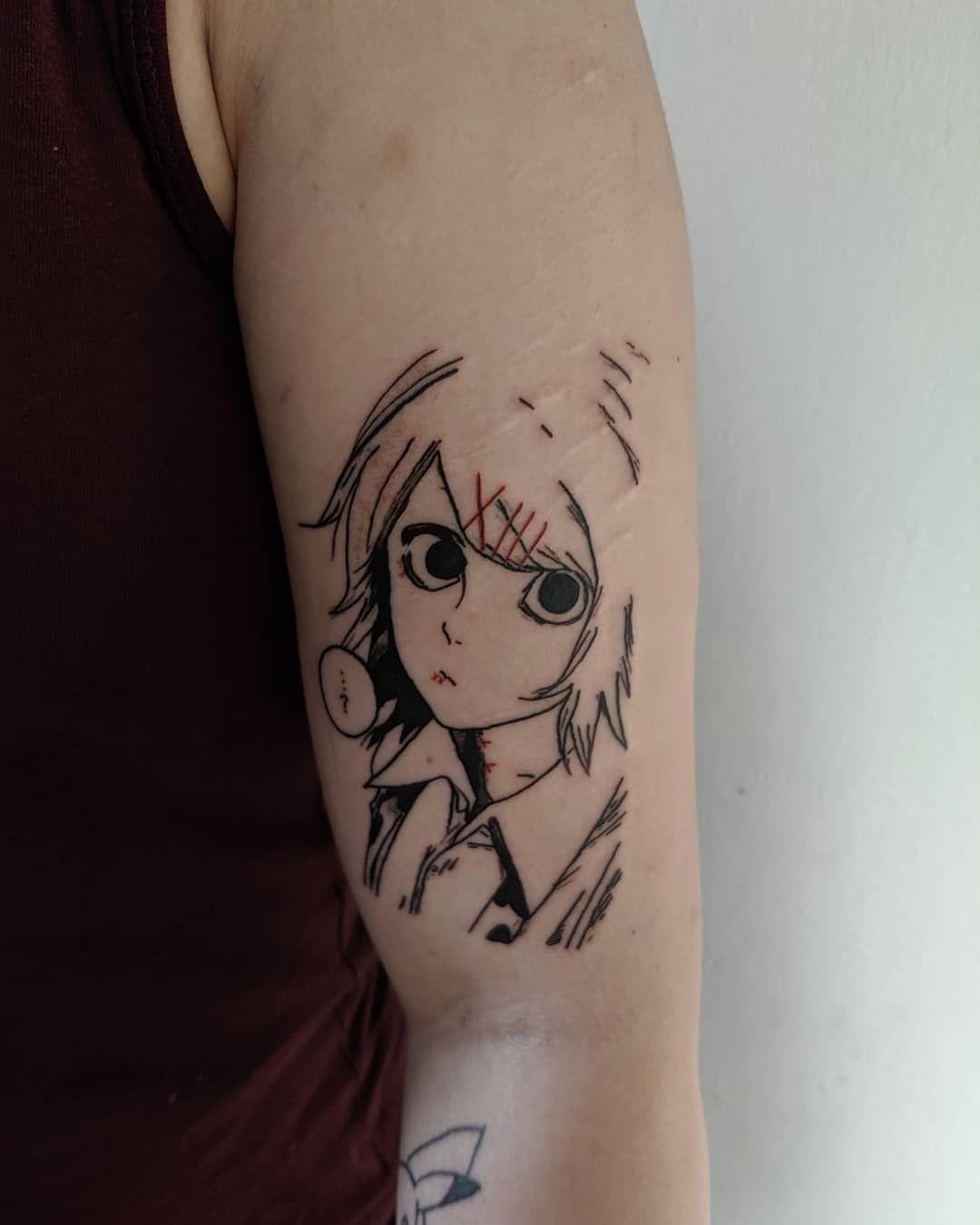

tokyo ghoul tattoos
Selection from Pinterest
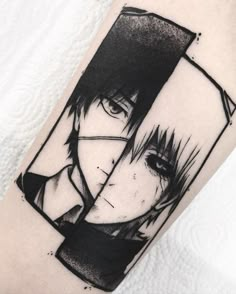

Kaneki: Discover 22 Kaneki tattoo ideas on this Pinterest board | tokyo ghoul manga, tokyo ghoul kaneki and more
Selection from Pinterest
One App to Store All Your Tattoo Ideas
Store your tattoo ideas in one place and Virtual Try-On them on your body!

Avoid Regrets with 3D Virtual Try-On!
Do a 3D Virtual Try-On to see how your tattoo design looks like on your body before you get it tattooed. Powered by Tatship's AI and 3D technology.



Historical Origins and Evolution of Tokyo ghoul Tattoos
The 'Tokyo Ghoul' series first debuted as a manga in 2011 and quickly gained popularity, leading to an anime adaptation in 2014. Its impact on pop culture has been significant, with a dedicated fanbase and influence on other media. While the series itself is relatively modern, it draws on historical and cultural themes, such as the concept of ghouls, which have roots in folklore and mythology. The series' exploration of identity and societal roles resonates with timeless human experiences, making it a rich source of inspiration for tattoos.
